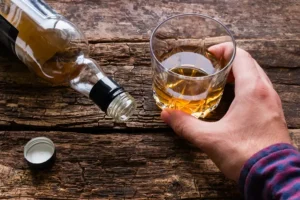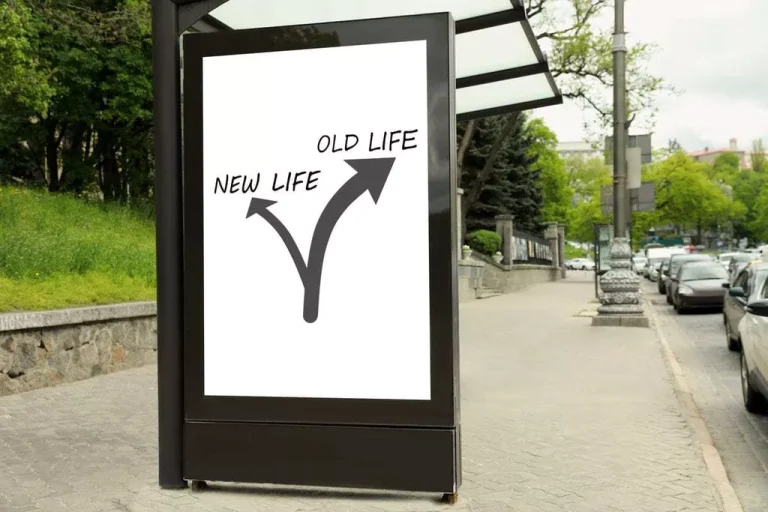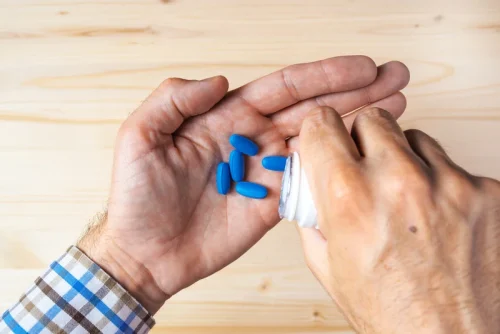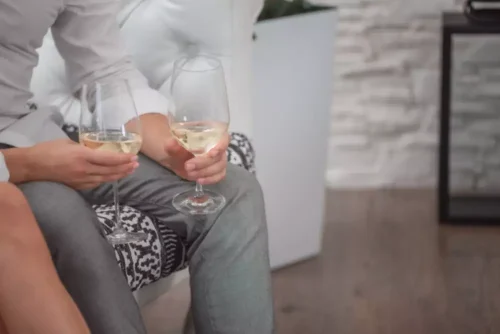
For example, people may experience steroid-induced insomnia, or antidepressants may worsen or induce sleep disorders. “If you experience insomnia, mood imbalances and other brain symptoms, it may be best to cut back alcohol intake overall,” Dr. Scheller adds. “Many people find that while it initially seems difficult to break the habit of using alcohol to induce sleep, they soon adjust and experience better sleep and energy overall,” she continues. Normal sleep cycles through four stages, which are either considered rapid eye movement (REM) sleep or non-REM sleep. Sleep and circadian rhythm disruption from alcohol also contribute to next-day tiredness, fatigue, irritability, and difficulty concentrating. Even if it doesn’t present as a full-fledged hangover, alcohol-related sleep loss negatively affects mood and performance.
- Doing so “can have dangerous effects on your brain’s control of breathing,” she explains.
- We all know someone who feels merry following their first drink and we know others who appear unfazed by pint after pint.
- “Even if alcohol initially helps [someone] fall asleep, they may wake up many times throughout the night or not get into a deep sleep,” she continues.
Is Your Troubled Sleep a Health Risk?
People with alcohol in their systems are also generally harder to wake, which means that they’re less likely to experience “arousals” that help them recover from OSA- and CSA-related pauses in breathing. His research and clinical practice focuses on the entire myriad of sleep disorders. That goes up to 4.5 hours to process two drinks, 6 hours for three beverages and 7 hours if you’ve had four servings. “Disruptions to the overall quantity and quality of your sleep can have a negative impact on your cardiovascular health, cognitive function and metabolic outcomes,” Dr. Shelgikar says. And keep in mind that alcohol-fueled nocturnal awakenings chip away at your total amount of shut-eye. So even if you’re in bed for 7 or more hours, as recommended by the American Association of Sleep Medicine, you’re actually logging fewer zzzs.

Snoring and Sleep Apnea
You may also experience parasomnias which are disruptive sleep disorders that occur in specific stages of sleep or in sleep-wake transitions. These can happen during arousals from rapid eye movement (REM) sleep or non-rapid eye movement (NREM) sleep. How much alcohol you drink and when you drink it can both influence sleep. Throughout the course of a typical night, your brain cycles among light sleep, slow-wave sleep and rapid eye movement sleep (or REM, the sleep stage when dreaming takes place). If you drink alcohol at night and have trouble falling or staying asleep, you might wonder how long you should wait between your last drink and going to bed so your sleep isn’t impacted. Sleep disorders like insomnia can co-occur with alcohol abuse, and treating insomnia can improve a person’s sleep quality while in recovery.
- So while alcohol is being processed, before you begin to feel a bit drowsy, the calories are being converted to energy.
- This should give the body enough time to metabolize the alcohol and get it out of one’s system, allowing them to enjoy unaffected sleep,” explains Dr. Hsu.
- The problem arises if you find yourself relying on alcohol to get you to sleep.
- You may also find alcohol does not help you fall asleep because you have developed a tolerance for its sedative effects.
Alcohol-disrupted sleep and risk-taking behaviour
Alcohol also affects people with central sleep apnea (CSA), which occurs when the brain periodically stops sending certain signals involved in breathing. Alcohol interferes with the brain’s ability to receive chemical messages involved in breathing, which decreases the body’s respiratory drive and increases the likelihood of pauses in breathing. The typical sleep cycle begins with three non-rapid eye movement (NREM) stages of sleep and ends with rapid eye movement (REM).
- This not only worsens pre-existing sleep apnea but may also lead to episodes of sleep apnea in individuals who previously did not experience it.
- Announcing you need a drink when feeling stressed or worn out is usually met with enthusiastic agreement.
- These sleep disorders include nightmares and sleepwalking, for example.
- Peters is a board-certified neurologist and sleep medicine specialist and is a fellow of the American Academy of Sleep Medicine.
- “When alcohol tolerance develops, the individual needs more alcohol in order to achieve the same sleep-promoting effects,” Dr. Shelgikar says.
- During these episodes, people tend to choose high-carb foods and foods that aren’t safe for human consumption, including raw meat.
- Sleepwalking and parasomnias — You may experience moving a lot or talking while you’re sleeping.
Insomnia and Alcohol

At that point, you’ll probably find yourself making bathroom runs in the middle of the night, since booze suppresses vasopressin, an antidiuretic hormone. Slow-wave sleep is also when your body churns out growth hormones. “Growth hormones are critical for bone strength, immune function and injury recovery,” Dr. Winter says. “When alcohol tolerance develops, the individual needs more alcohol in order to achieve the same sleep-promoting effects,” Dr. Shelgikar says.

Individuals who have attention deficit hyperactivity disorder (ADHD) are also particularly affected by insomnia. A 2020 study found that people with ADHD are more likely to consume alcohol to treat their insomnia symptoms. Generally, females and older adults are at a higher risk for insomnia. Individuals with mental health conditions are also more likely to develop insomnia.
A 2019 study showed that individuals who sleep for under 6 hours each night have a 20% higher chance of heart attack than individuals who sleep between 6 and 9 hours. Studies estimate that 36–91% of people experiencing alcohol dependence may have insomnia. Consuming certain substances, such as alcohol, can disrupt sleep schedules. This is because alcohol works as a central nervous system depressant.
Finally, regular drinking has been linked to insomnia and other sleep disorders, especially later in life. With extended use of alcohol over time, there can be long-term concerns, too. Many who abuse alcohol often do it well into the does alcohol help you sleep night and oversleep into the next day. In time this may lead to switching up day and night sleeping patterns. Then, as withdrawal from the drug or alcohol occurs there’s a big sleep-wake reversal which then needs to be addressed.
How Does Alcohol Affect the Sleep Cycle?
- The circadian rhythm is your body’s internal clock, which helps you feel awake during daylight hours and sleepy at night.
- Once dopamine levels go back to normal, we’re still left with a depressed system, which often leads to another drink to get the dopamine levels back up.
- Alcohol appears to consistently delay the first REM sleep episode, and higher doses of alcohol appear to reduce the total amount of REM sleep.
- Similarly, studies on bereaved individuals have found that using alcohol to cope with grief increases the risk of developing major depression, which is itself a risk factor for sleep disturbances.
- Finally, going to bed with alcohol in your system increases your chances of having vivid dreams or nightmares, or sleepwalking and other parasomnias.
No Comments
Leave a Comment
trackback address